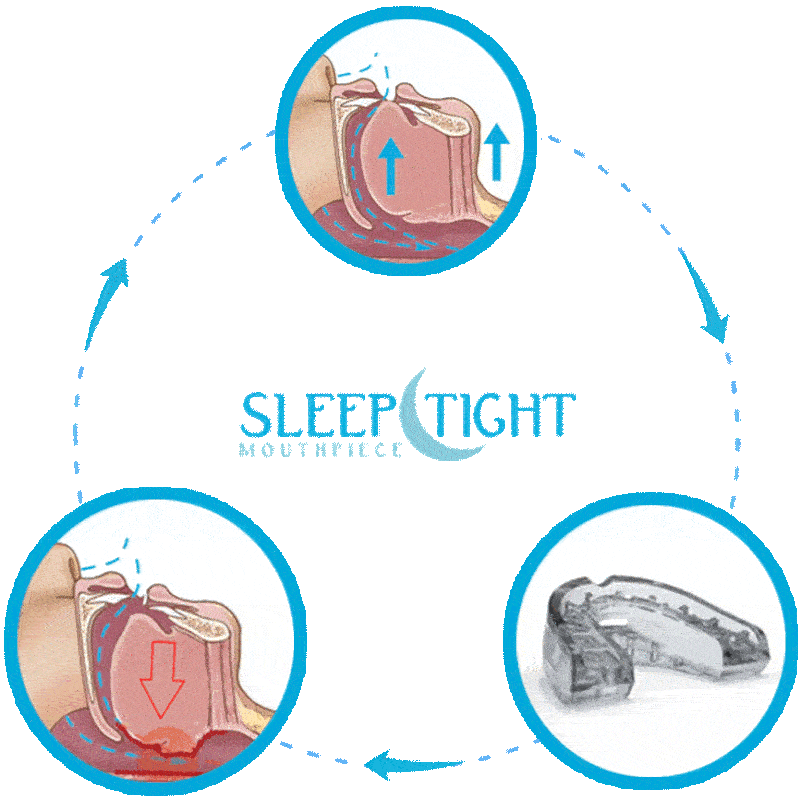Having trouble falling asleep at night? It can be frustrating and exhausting to toss and turn, constantly thinking about how much sleep you’re missing out on. But don’t worry, there are plenty of natural remedies that can help you get the restful sleep you deserve. In this article, we’ll explore some of the most effective methods for combating insomnia naturally. Whether you’ve tried prescription medications or are simply looking for alternative options, you’re sure to find something that works for you.
When it comes to natural remedies for insomnia, there are several key strategies to consider. One of the most important aspects is establishing a consistent sleep schedule. By going to bed and waking up at the same time every day, you can train your body to recognize when it’s time to sleep. Additionally, creating a relaxing bedtime routine can signal to your brain that it’s time to wind down and prepare for rest. This could involve activities such as reading a book, taking a warm bath, or practicing deep breathing exercises. In the following article, we’ll delve deeper into these methods and explore more natural remedies for insomnia, so you can finally get the good night’s sleep you’ve been dreaming of.
Understanding Insomnia
Insomnia is a common sleep disorder that affects many people worldwide. It is characterized by difficulty falling asleep, staying asleep, or both. If you frequently find yourself tossing and turning at night, it is likely that you are familiar with the frustration and exhaustion that insomnia can bring. However, rest assured that there are several natural remedies that can help you combat insomnia and improve the quality of your sleep.
What is insomnia?
Insomnia is a condition that makes it difficult for individuals to fall asleep, stay asleep, or achieve restful sleep. It can lead to daytime drowsiness, irritability, and difficulty concentrating. Insomnia occurs in various degrees of severity and can be classified into three different types: acute insomnia, which lasts for a few nights or weeks; chronic insomnia, which persists for at least three nights a week, for a period of three months or more; and comorbid insomnia, which is linked to another medical or mental health condition.
Causes of insomnia
Insomnia can stem from a variety of factors. It may be caused by stress, anxiety, depression, or other emotional and psychological issues. Certain medical conditions such as chronic pain, asthma, and gastrointestinal problems can also contribute to insomnia. Lifestyle choices, such as consuming caffeine or alcohol, smoking, exercising late at night, and irregular sleep schedules, can disrupt sleep patterns and lead to insomnia.
Different types of insomnia
Insomnia can manifest in different ways, and each type may require a unique approach for effective management. Initial insomnia occurs when individuals have difficulty falling asleep at the beginning of the night. Middle insomnia refers to the difficulty of staying asleep during the night, often leading to frequent awakenings. Terminal insomnia, on the other hand, involves waking up too early in the morning and being unable to fall back asleep. It is crucial to identify the type of insomnia you are experiencing to determine which natural remedies will be most effective for you.
Effects of Insomnia on Health
Chronic insomnia can have severe effects on overall health and well-being. The consequences of inadequate sleep range from physical to psychological issues, affecting various aspects of an individual’s life.
Negative impact on physical health
Lack of sleep can have a detrimental impact on physical health. It weakens the immune system, making individuals more susceptible to illnesses and infections. Prolonged sleep deprivation has also been associated with an increased risk of chronic conditions such as obesity, diabetes, cardiovascular disease, and even certain types of cancer. Additionally, insomnia can exacerbate existing conditions and hinder the healing process, making it essential to address the root causes of the sleep disorder.
Psychological effects of insomnia
Insomnia not only affects physical health but also takes a toll on mental and emotional well-being. Sleep deprivation can contribute to symptoms of anxiety and depression. It can impair cognitive function, leading to memory problems, difficulty concentrating, and decreased productivity. Moreover, insomnia often leads to irritability and mood swings, affecting personal relationships and overall quality of life.
Impairment in daily functioning
The consequences of insomnia extend beyond the night. The lack of restorative sleep can result in daytime sleepiness, making it challenging to perform daily tasks and responsibilities effectively. Fatigue can impact work performance and safety, increasing the risk of accidents and errors. It can also hinder academic performance and impair decision-making abilities. To mitigate these issues, natural remedies for insomnia should be considered to improve sleep quality and enhance overall well-being.
Traditional Sleep Aids
Over-the-counter sleeping pills and prescription medications for insomnia are commonly used sleep aids. Although these options can be effective in the short term, they often come with potential side effects and risks.
Over-the-counter sleeping pills
Over-the-counter sleeping pills are widely available and often contain antihistamines, which induce drowsiness. They can be effective in promoting sleep, but they may cause morning grogginess and daytime drowsiness. Long-term use can also lead to tolerance and dependence, making it important to consult a healthcare professional before incorporating them into your sleep routine.
Prescription medication for insomnia
Prescription medications for insomnia, such as benzodiazepines and non-benzodiazepine hypnotics, are typically prescribed for severe cases of insomnia. They work by suppressing the central nervous system to induce sleep. These medications can be effective, but they also carry the risk of side effects and potential dependency. It is crucial to use them under the supervision of a healthcare professional and to explore natural remedies before resorting to prescription sleep aids.
Natural Herbs and Plants
Many herbs and plants have been used for centuries to promote relaxation and improve sleep. These natural remedies can provide an alternative to medications while minimizing the risk of adverse side effects.
Valerian root
Valerian root is a popular herb known for its calming effects. It is believed to enhance the production of GABA, a neurotransmitter that promotes relaxation and sleep. Valerian root is available in various forms, including capsules, teas, and tinctures. It is generally considered safe, but it may cause mild side effects such as headaches and stomach upset. It is advisable to consult a healthcare professional before using valerian root, especially if you are taking other medications.
Passionflower
Passionflower is another herb that has been used for its calming properties. It is believed to increase levels of gamma-aminobutyric acid (GABA), a neurotransmitter that helps to reduce anxiety and promote sleep. Passionflower is available in different forms, including teas, extracts, and capsules. While it is generally safe, it may cause drowsiness and should be used with caution alongside sedatives or antidepressant medications.
Chamomile tea
Chamomile tea is a well-known herbal remedy for promoting relaxation and minimizing anxiety. It contains apigenin, a compound that binds to specific receptors in the brain, reducing anxiety and facilitating sleep. Chamomile tea is caffeine-free and can be consumed before bedtime to induce a sense of calmness and improve sleep quality. However, individuals with allergies to ragweed or other plants in the daisy family should exercise caution when using chamomile.
Lavender
Lavender has long been valued for its soothing and relaxing properties. Its scent is believed to promote sleep by reducing anxiety and slowing down the nervous system. Lavender essential oil can be diffused in the bedroom or added to a warm bath before bedtime. It can also be incorporated into a bedtime routine by using lavender-scented pillows or sprays. Lavender is generally safe, but it may cause skin irritation in some individuals.
Lifestyle Changes for Better Sleep
In addition to natural remedies, making lifestyle changes can significantly improve sleep quality and help manage insomnia.
Establishing a sleep routine
Creating a consistent sleep routine can train your body and mind to associate specific activities with sleep. Going to bed and waking up at the same time every day, even on weekends, can regulate your internal clock and make it easier to fall asleep and wake up naturally. Engaging in relaxing activities, such as reading a book or taking a warm bath, before bedtime can also signal to your body that it is time to wind down.
Creating a comfortable sleep environment
Creating a sleep-friendly environment can greatly enhance sleep quality. Make sure your bedroom is cool, dark, and quiet. Invest in a comfortable mattress and pillows that suit your sleeping preferences. Consider using blackout curtains or a sleep mask to block out any external light. Additionally, using white noise machines or earplugs can help drown out any unwanted noise and create a peaceful sleeping environment.
Limiting caffeine and electronics before bed
Caffeine is a stimulant that can interfere with sleep quality, so it is advisable to limit or avoid consuming it in the afternoon and evening. Similarly, the blue light emitted by electronic devices, such as smartphones and tablets, can disrupt sleep by suppressing the production of melatonin, a hormone that regulates sleep-wake cycles. Disconnecting from electronics at least an hour before bed can promote better sleep.
Relaxation Techniques
Relaxation techniques can be effective in calming the mind and body, promoting relaxation and improving sleep quality.
Progressive muscle relaxation
Progressive muscle relaxation involves tensing and relaxing different muscle groups to promote physical and mental relaxation. Starting from the toes and working up to the head, progressively tense and release each muscle group for a few seconds. This technique can help alleviate muscle tension and promote a state of relaxation conducive to sleep.
Meditation and deep breathing exercises
Meditation and deep breathing exercises can help calm the mind and reduce stress and anxiety. Focus on your breath, inhaling deeply through your nose and exhaling slowly through your mouth. Practice mindfulness meditation, acknowledging thoughts and feelings without judgment, and gently bringing your attention back to your breath. Engaging in these practices before bed can help quiet the mind and prepare you for restful sleep.
Yoga for better sleep
Yoga combines physical postures, breathing exercises, and meditation to promote relaxation and improve sleep quality. Certain yoga poses, such as child’s pose and legs-up-the-wall, can help relieve tension and prepare the body for sleep. Incorporating a gentle yoga routine into your nighttime routine can have a calming effect on both the body and mind.
Aromatherapy for Insomnia
Aromatherapy utilizes the scent of essential oils to promote relaxation and improve sleep quality. Essential oils can be diffused in the bedroom or applied topically in diluted form.
Essential oils for sleep
Several essential oils are known for their calming and sleep-inducing properties. Lavender, mentioned earlier, is a popular choice due to its relaxing effects. Other essential oils that promote sleep include roman chamomile, bergamot, ylang-ylang, and cedarwood. Experimenting with different oils and finding the scents that resonate with you can help create a soothing sleep environment.
Diffusing oils in the bedroom
Using essential oil diffusers in the bedroom can disperse the scent throughout the space, promoting relaxation and better sleep. Add a few drops of your preferred essential oil to water in the diffuser, and let the aroma fill the room. However, it is essential to use high-quality, pure essential oils and to follow the manufacturer’s instructions for safe use.
Dietary Changes to Promote Sleep
What you eat and drink can significantly impact your sleep quality. Making mindful dietary changes can support better sleep.
Foods to eat for better sleep
Certain foods contain nutrients that support sleep. Incorporating foods rich in tryptophan, such as turkey, nuts, and seeds, can increase the production of serotonin, a precursor to melatonin. Other sleep-promoting foods include whole grains, dairy products, cherries, kiwi, and herbal teas. It is important to note that eating a heavy meal close to bedtime can disrupt sleep, so it is best to have a light meal at least a few hours before bed.
Avoidance of heavy meals before bedtime
Consuming a heavy meal before bedtime can lead to indigestion and discomfort, making it difficult to fall asleep and stay asleep. To ensure a restful night’s sleep, avoid large, high-fat meals, spicy foods, and acidic foods before bed. Opt for light, easily digestible snacks if needed. Additionally, it is advisable to limit fluid intake close to bedtime to minimize nighttime trips to the bathroom.
Acupuncture and Acupressure
Acupuncture and acupressure are ancient Chinese techniques that involve the stimulation of specific points on the body. They can be effective in promoting relaxation and relieving insomnia.
Benefits of acupuncture for insomnia
Acupuncture involves the insertion of thin needles at specific points on the body to stimulate energy flow. This practice is believed to regulate the body’s natural balance and promote better sleep. Acupuncture can be particularly beneficial for individuals with chronic insomnia and those who have not found relief from other natural remedies. It is important to seek out a licensed and experienced acupuncturist for safe and effective treatment.
Pressure points for better sleep
Acupressure is a technique that involves applying pressure to specific points on the body. Stimulating these points can help relieve tension, promote relaxation, and facilitate sleep. Common pressure points for better sleep include the H7 point (located on the inner wrist), the GB20 point (at the base of the skull), and the KID6 point (on the inside of the ankle). Gently applying pressure to these points in a circular or tapping motion can help you unwind and prepare for sleep.
Conclusion
Exploring natural remedies for insomnia can provide an alternative to medications and promote better sleep without adverse side effects. By understanding the various options available, individuals can tailor their approach to suit their specific needs and preferences, ultimately improving their sleep quality and overall well-being. Remember, always consult with a healthcare professional before starting any new treatments or supplements for insomnia. With patience, perseverance, and the incorporation of natural remedies into your sleep routine, you can overcome the challenges of insomnia and achieve a better night’s sleep.



